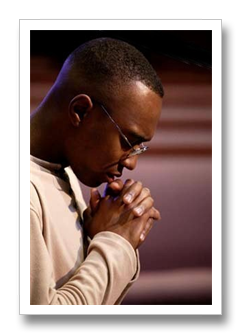“What would it look like to move from ‘more, bigger, faster’ to ‘richer, deeper and more satisfying?’” No, that quote is not from a church leader of any stripe; it’s from a Harvard Business Review blog by Tony Schwartz, president and CEO of The Energy Project. His basic idea is that business is currently focused on providing more products and services without increasing capacity. In other words, most companies are working their employees too hard in order to generate income. This approach, Schwartz argues, “generates value that is narrow, shallow, and short term — diminishing returns until there are ultimately no returns at all.” His solution is to slow down. “Calmness,” he says, “is critical to being able to think clearly and deeply.” That leads to a focus on those things that are truly valuable for the long term.
The idea resonates with me in almost every aspect of life. I certainly feel stretched thin at work, and it seems my students do, too. Life at home? With three active teenagers it’s always hectic, but I have noticed to my dismay that even summertime brings little rest. Apparently the directionless—and therefore possibility-filled—days of my own childhood summers are gone, lost in a whirlwind of camps and games and practices and lessons. When my kids are sprawled listlessly on the couch watching TV, they aren’t enjoying the guilty pleasure of occasional laziness—they’re exhausted.
All of that bothers me, but not as much as the fact that many, if not most, congregations seem to have succumbed to the allure of “more, bigger, faster” even though “richer, deeper, and more satisfying” are values that permeate the biblical worldview. Building programs and capital campaigns certainly have their place but not at the expense of quiet for prayer and contemplation. Teaching and preaching that address the realities of life in the world are not only acceptable but absolutely necessary. Yet they dare not be confined and conformed to the patterns of the world, as if we are not preaching and teaching forgiveness and the way of salvation. The church needs volunteers for many projects, of course, but we are there first and foremost as worshipers, as sheep that hear their shepherd’s voice. Too much, too big, too fast. James Smith’s observation in Desiring the Kingdom that congregations have, to some extent, bought into the “secular liturgies” of consumerism and therapy rings true for me.
 I hope this doesn’t come off as a curmudgeon’s rant, or perhaps I should say as only a curmudgeon’s rant. It’s really a plea to slow down and listen to Christ’s voice, to think and pray, to take the time to find joy in creation and new creation.
I hope this doesn’t come off as a curmudgeon’s rant, or perhaps I should say as only a curmudgeon’s rant. It’s really a plea to slow down and listen to Christ’s voice, to think and pray, to take the time to find joy in creation and new creation.
I have often been critical of congregations and church bodies that follow too closely the latest business trends. I might change my mind if Schwartz’s vision for business reminds them of the “richer, deeper, and more satisfying” life that is ours to be expressed in living together as Christ’s church.


Leave a Reply
You must be logged in to post a comment.